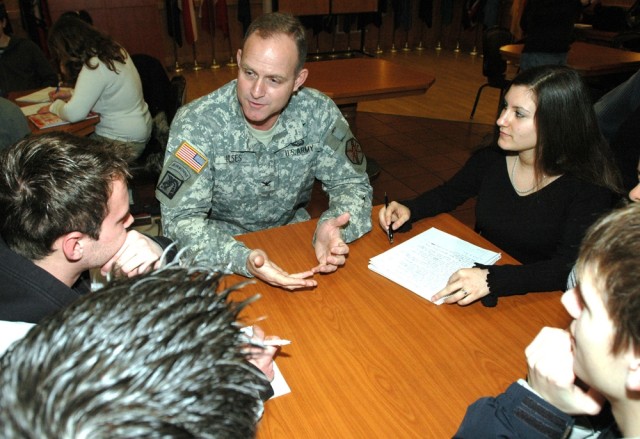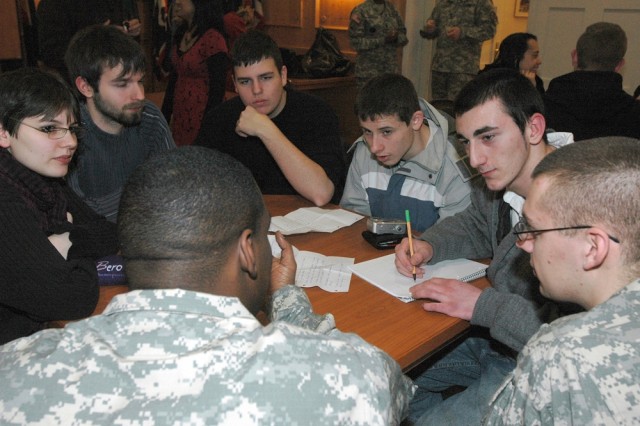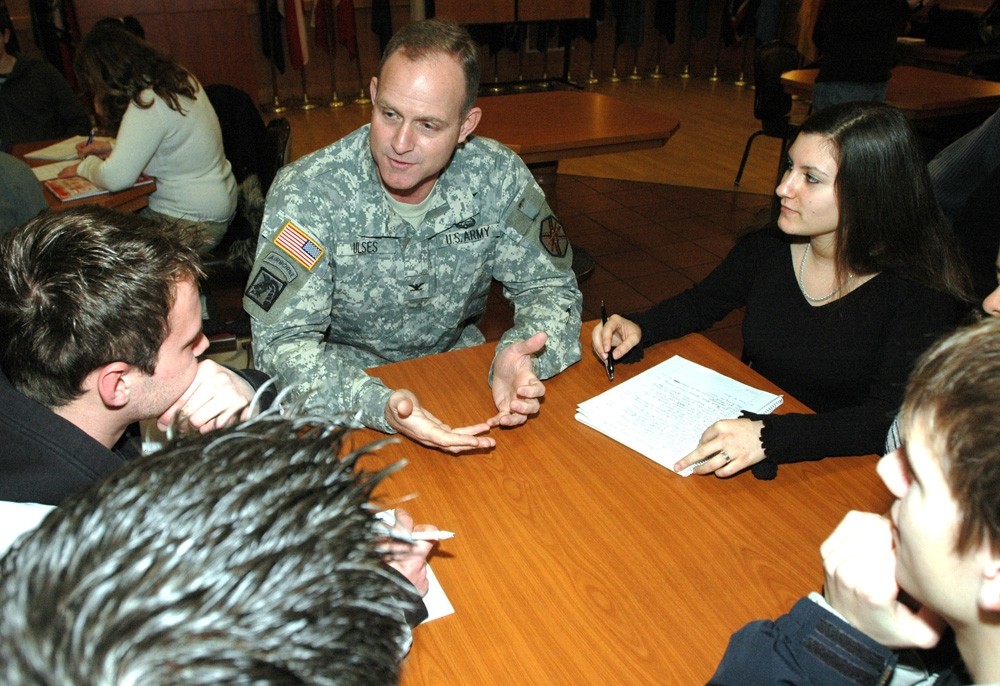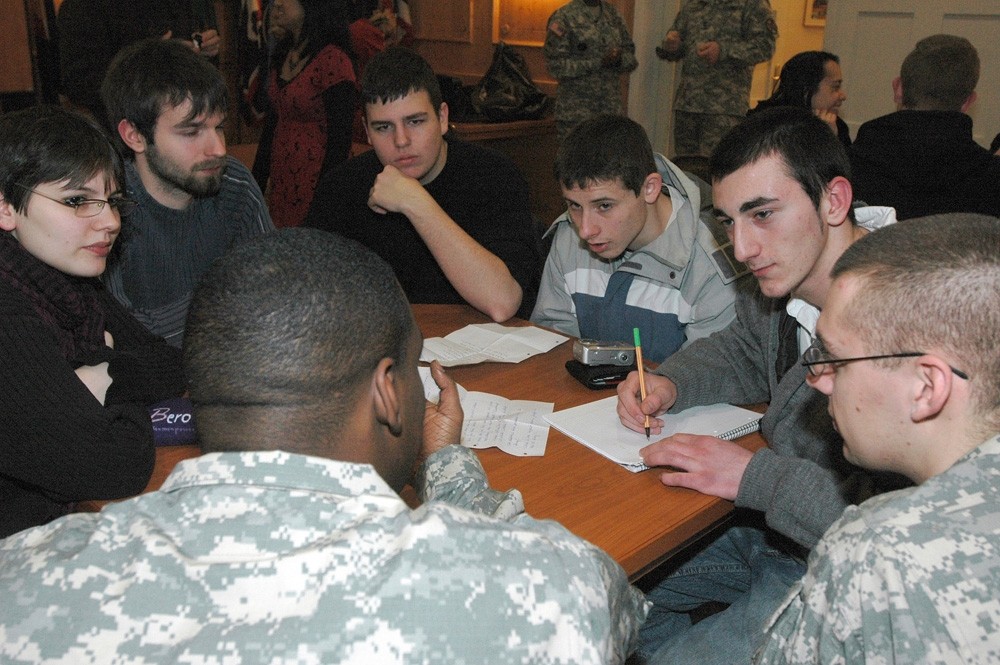HEIDELBERG, Germany - A group of 12th-grade students from a German technical school will contribute to a multimedia presentation called "The Other America," focusing on American cultural issues and lifestyles, with the assistance of Soldiers from U.S. Army Garrison Heidelberg.
Students from the Carl Bosch Technical Schule in Wieblingen visited Patton Barracks Jan. 31 as guests of the garrison equal opportunity office, taking advantage of a rare opportunity to interview U.S. troops.
In coordination with the Deutsch-Amerikanisches Institut and the University of Heidelberg, the interviews will be combined into a multimedia presentation that will be shown at DAI from the end of May through September, which will allow U.S. servicemembers a view of themselves through their host country's eyes.
Following a welcome from Col. Robert J. Ulses, Heidelberg garrison commander, the students broke into groups, asking Soldiers about different facets of their everyday lives and the impact of race and gender on American experiences.
Although electrical and mechanical engineering, not English, is the primary field of study for the participating students, they will certainly benefit from the experience, said Margit Veith, an instructor to the class, adding that they had watched American movies and listened to songs in English to prepare for the visit.
But nothing quite prepared them to actually speak to Soldiers, said student Alexandros Bertzenidis. "I was excited. I never had any chance to do things with Americans before."
"We see Soldiers jogging and doing sports," Sebastian Brose said, but emphasized that despite attending a few German-American fests he didn't really know any Americans well.
"I learned that a Soldier of color I spoke to had more experiences with (racial) stereotypes (than a white Soldier), but that they aren't as true, or extreme, like in the movies," Brose said.
The questions the students asked were "very good," said Sgt. 1st Class David Green, garrison EO advisor said. "They were curious about how Americans - military folks in particular - deal with race and gender."
Green received feedback from the project coordinator that the impact on the students was greater than first realized.
"She said some of the students initially had negative feelings toward Americans, and particularly the military," Green said. "These (perceptions) were completely blown away (after) the opportunity to interact with actual Soldiers."
The improvement in understanding between people and nations is worth further effort, he added.
"It was a good opportunity for us to erase some stereotypes that the students themselves held," Green said. "I believe we will continue this with other groups."




Social Sharing